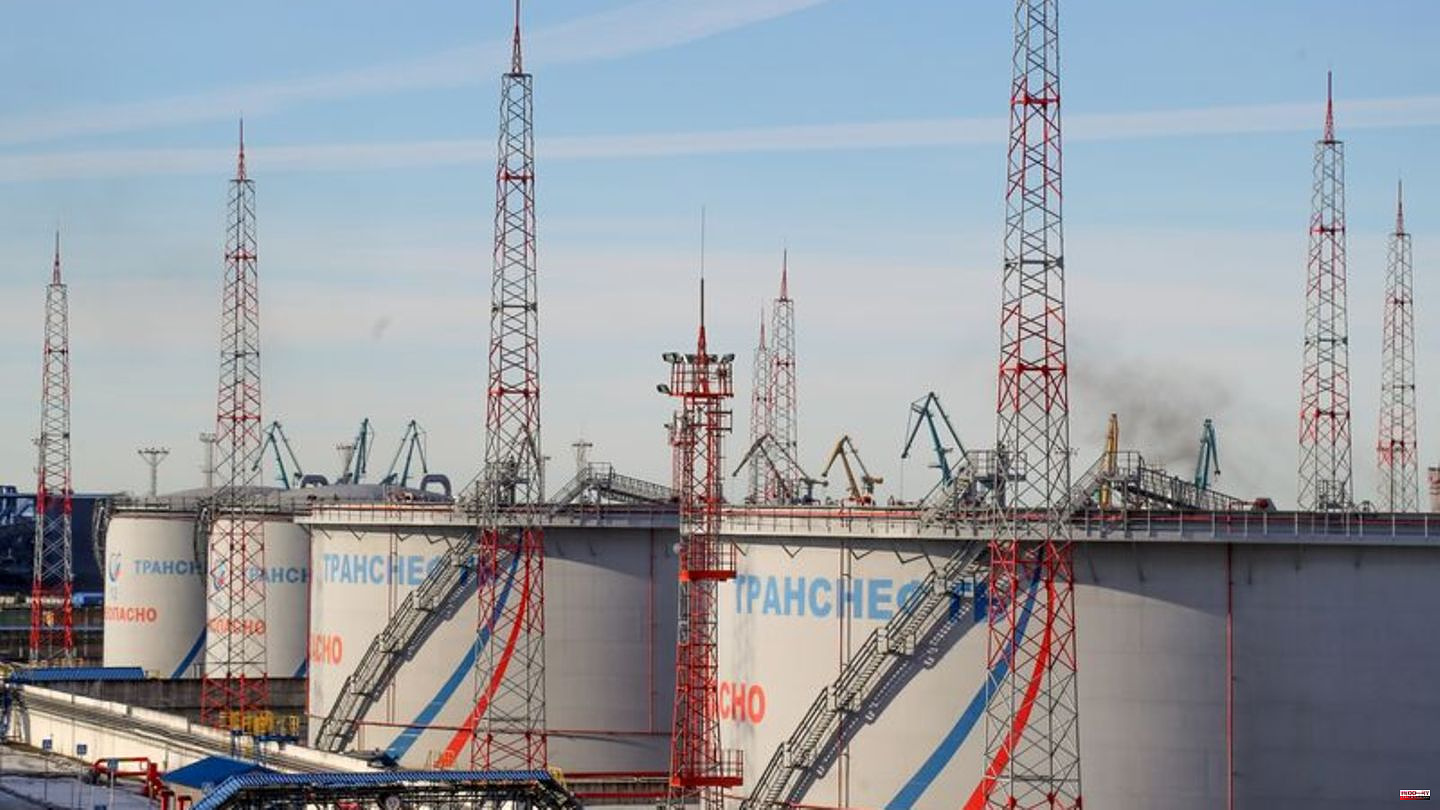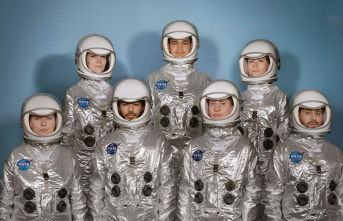The G7 of economically strong democracies want to ensure that Russia earns less from its oil - and thus dry up a source of financing for the war against Ukraine. The goal is an international price cap on imports of Russian oil.
In a joint statement on Friday, G7 finance ministers urged all oil-importing countries to join the move. "We aim for a broad coalition to maximize effectiveness," they said. However, it is doubtful whether this will succeed.
measure against inflation
In essence, the aim is to force Russia to sell oil to large buyers such as India at a significantly lower price in the future. The hope is that this will ease the global oil markets and cushion the effects of the Ukraine war on energy prices. Combined with an expansion of production in the oil-exporting countries, the price cap could "really curb inflation very significantly," said Finance Minister Christian Lindner (FDP) in Berlin.
At the same time, Russia would no longer be able to benefit from rising oil prices and thus fill its war chest. "Russia is currently making high profits from the export of raw materials such as oil, and we want to take decisive action against that," stressed Lindner. "So we want to limit Russia's revenues while reducing the economic damage to our society."
Ukrainian President Volodymyr Zelenskyy welcomed the proposed new energy sanctions as a show of support for his war-torn country. "The time for the sanctions is long overdue," said the head of state in a video distributed in Kyiv on Friday. "The sanctions will not only limit the flow of petrodollars and gas euros to Moscow, but also restore justice to all Europeans who are being blackmailed by Russia with an artificially created price crisis in the energy market."
Russia threatened countermeasures in the event of implementation. According to the state agency TASS, Kremlin spokesman Dmitry Peskov said that deliveries would then only be made to countries that work under market conditions. Countries "joining a potential price cap will not be among the recipients of Russian oil." Peskow spoke of an absurd decision in the interests of the United States.
The price cap must be organized globally
According to the plans of the G7 finance ministers, the sea transport of crude oil and petroleum products of Russian origin should only be possible if the oil was bought below a certain price. The price cap could work by linking important services such as insurance for oil transport to compliance with the regulation. These are largely in Western hands, for example in Great Britain.
Chancellor Olaf Scholz (SPD) recently emphasized that a price cap only works if it is organized globally. EU Commission President Ursula von der Leyen said on Thursday in the ZDF program "Maybrit Illner" that "a large number of countries internationally" is necessary. "It now seems clear that we will achieve this goal." When asked if China was also on board, she said: "Not everyone is on board."
Lindner campaigned for the regulation: "Of course, the countries with lower incomes can also benefit from this, as they would otherwise hardly be able to pay the increased prices in dollars." Russian oil will not be completely taken off the market, households and businesses can continue to be supplied, but Russian President Vladimir Putin's income will be cut.
With the declaration, the G7 themselves undertook to implement the price cap in their own countries as quickly as possible. An oil embargo against Russia and a ban on ship transport services have already been passed in the EU. The price cap is based on unanimity among the 27 member countries, it said. The aim is to implement it within the timeframe of the sixth EU sanctions package.
Von der Leyen can also imagine gas caps
The finance ministers of the G7 did not initially commit themselves to an exact upper price limit. It also depends on technical issues. The cover should be communicated transparently and its effect closely monitored.
The US expects that the price cap will significantly hurt Russia. "It will both affect Russia's ability to wage its unjustified war in Ukraine and accelerate the deterioration of Russia's economy," said US Treasury Secretary Janet Yellen. In addition to Germany and the USA, the "Group of 7" also includes Canada, Great Britain, France, Japan and Italy.
EU Commission President Ursula von der Leyen brought up a price cap for Russian gas in addition to the oil price cap. "I am firmly convinced that it is now time for a price cap on Russian pipeline gas to Europe," she said at a meeting of the Union faction. The EU Commission had previously advised against a price cap on the wholesale market within the EU as an emergency measure in a draft, as this could distort supply and demand.












